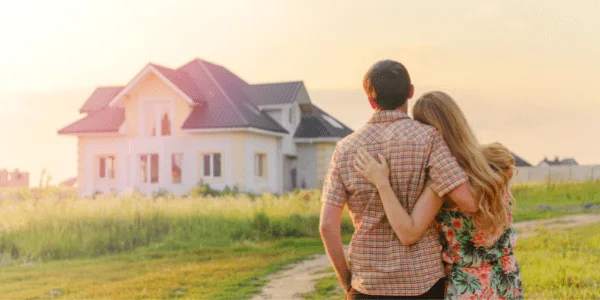Dreams of Home Ownership Fading Fast for Younger Generations

The plight of young people with fading dreams of one day owning their own properties was recently laid bare in a BBC expose; the average UK property price has once again reached a new all-time high, and an entire generation is waking up to the fact that homeownership may be completely out of the question.
What is particularly striking is the way in which the issue is by no means confined to certain affluent areas of the country. The BBC makes it clear just how difficult and unaffordable things are becoming for would-be buyers all over the country.
Record property price growth in Wales
The BBC spoke to a 29-year-old classroom assistant and freelance writer from Gwynedd, who said that her region had been absolutely swamped by movers and buyers over the course of the pandemic.
“I’m just burying my head in the sand and praying the market might crash,” she said, in reference to Wales seeing the highest year-on-year average house price growth in the UK: an astonishing 11% since the same time last year.
“Even when Wales was closed [in lockdown] and we were staying home, it was still being flooded with tourists who didn’t respect the rules.”
“You can feel like where you live is just a playground. I’m hearing about houses being bought unseen and the prices in North Wales rising more than anywhere else in the UK.”
She went on to discuss the growing impossibility of purchasing even a modest home anywhere in the region due to the disparity between average wages and current property prices.
“I’ve got a friend who grew up in Abersoch, and there’s no way he could afford to live there now,” she told the BBC.
“It’s full of these incredible millionaires’ houses that are empty for most of the year. It’s really frustrating when people say, ‘You just need to work harder’. The average income in that area is not that high; you could work your arse off for years and never be able to afford a property.”
Where she lives, the average gross weekly income stands at around £479, which equates to an approximate annual salary of slightly less than £25,000. This isn’t nearly enough to pass even the initial stress tests of a major bank or lender.
Struggles in the Southwest
The BBC also spoke to 30-year-old Tamsyn Kelly from Cornwall:
“My plan was to make money in the city and go home and live in Cornwall eventually,” she explains.
“A few years ago, that seemed possible, but now there’s no way I could afford a property at home. If I went home, I’d have to register for a housing association property.”
“It doesn’t make any sense for my brother to try and get rental accommodation.”
“In Penzance, [homeowners] think, ‘Why rent it out when I could Airbnb?’ I think it’s becoming harder and harder for young people to stay in Cornwall; most of my friends there are still living with their parents, and we’re nearly 30. People aren’t able to get on with their lives and meet normal adult milestones.”
Somerset resident Sam Fawcett, 28, likewise stated that his chances of purchasing a property were practically non-existent even before the COVID-19 crisis began.
“Three new average-sized housing estates have gone up in the last five years, and another large one is just starting construction,” he told the BBC.
“But it doesn’t seem to have lowered house prices at all. In fact, my parents’ neighbours have just sold their house for £100,000 more than when they bought it four years ago.”
“The main thing I’ve noticed is how few properties are on the market at the moment.”
“There were periods over the last year when there were no properties at all to rent in the town or even a few miles into the surrounding area. Now there are six, but only three are within our price range. I know some of this must be because of COVID-19, but even in 2019, it was much harder than we thought it would be to find somewhere.”
